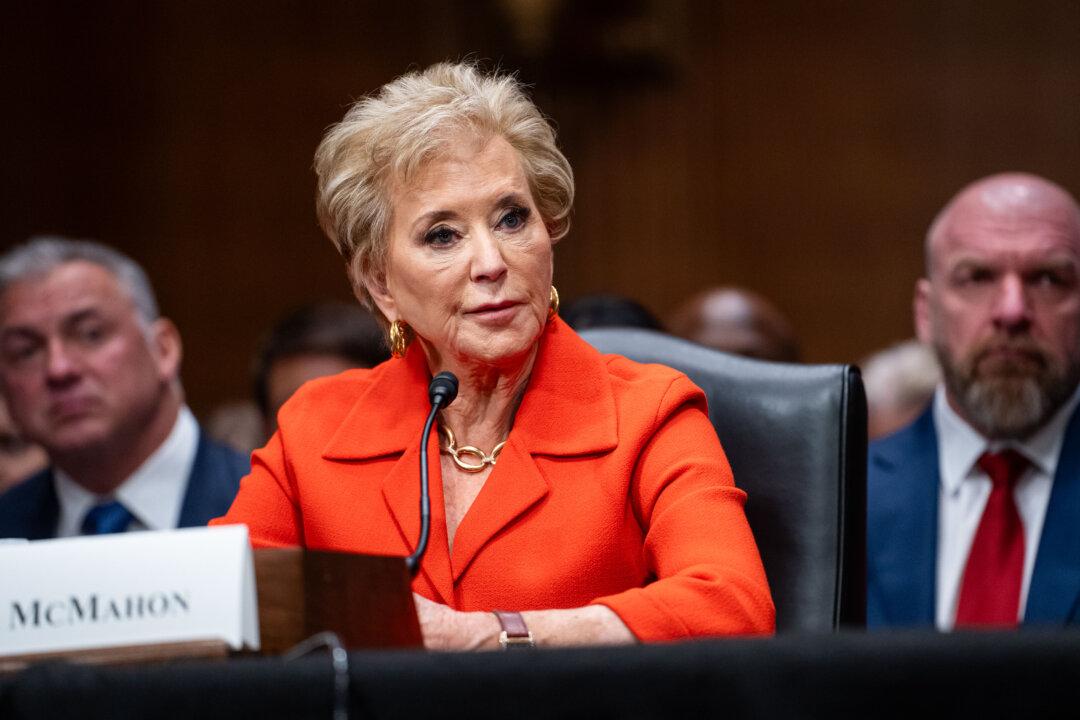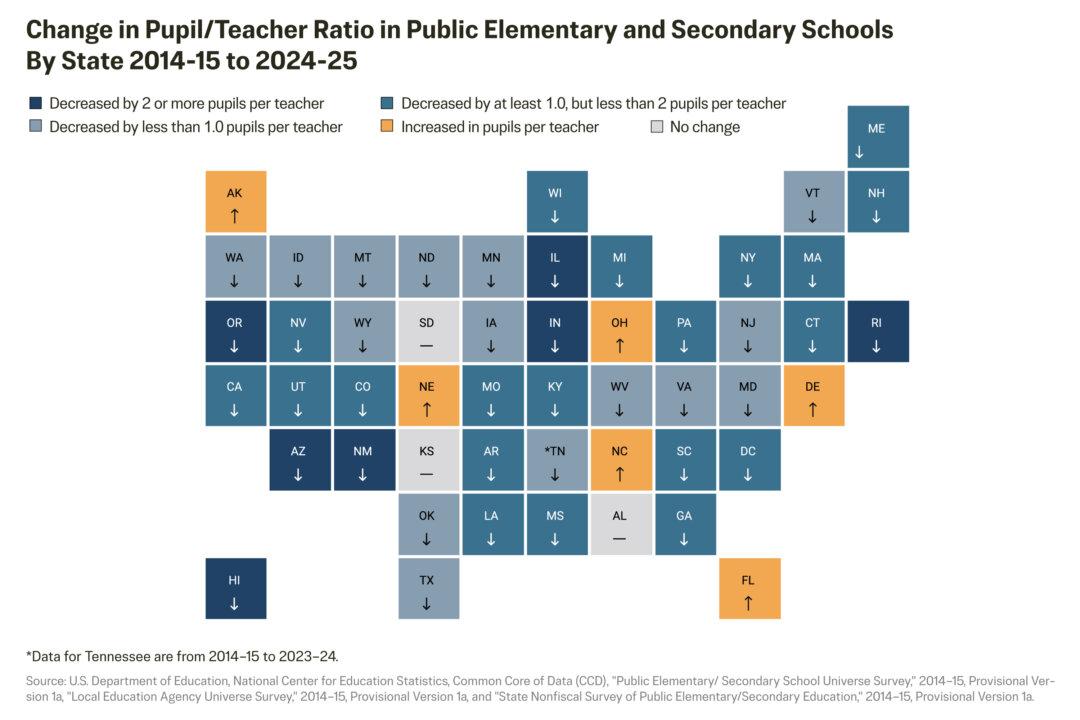At her confirmation hearing, just days after President Donald Trump and the Department of Government Efficiency (DOGE) embarked on deep cuts to the Department of Education, Linda McMahon, the president’s pick for secretary of education, was asked how a federal agency on the chopping block could continue to serve the majority of K–12 and university students across America.
McMahon appeared before the Senate Committee on Health, Education, Labor, and Pensions in Washington on Feb. 13.





